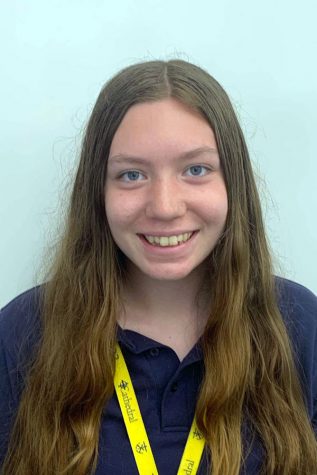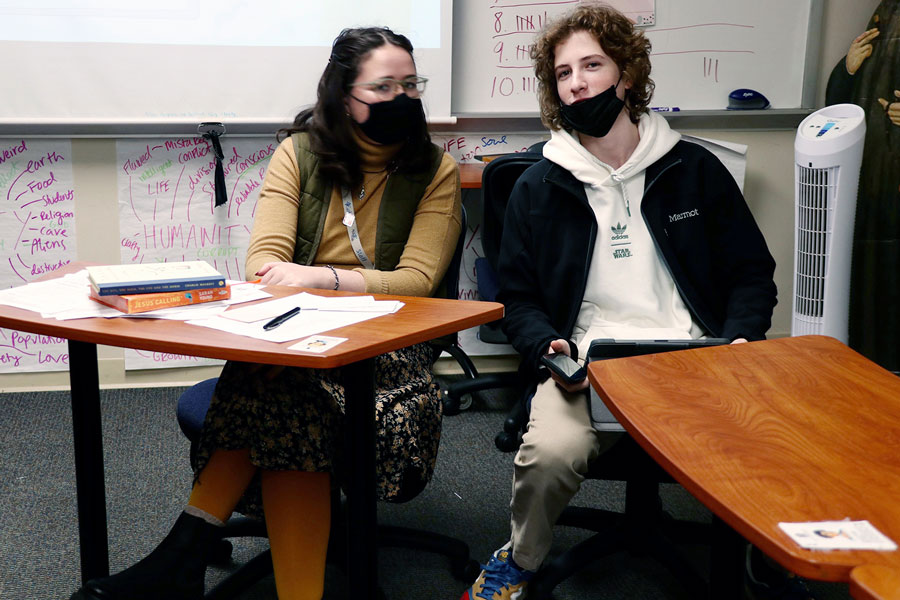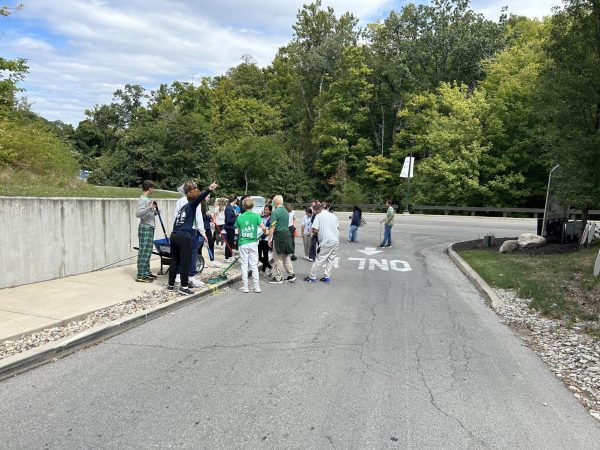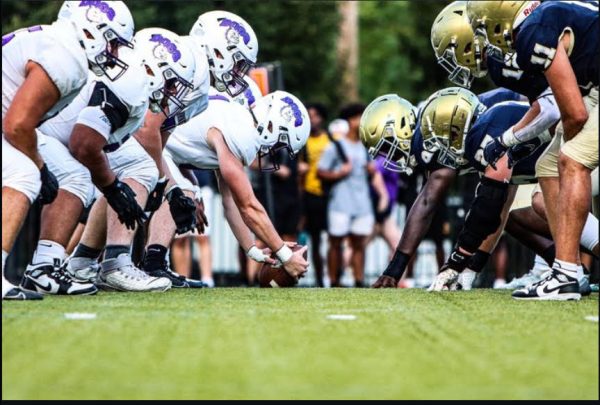Covid update: School nurse explains changes
Mask requirement, definition of fully vaccinated are modified
During J-Term, English teacher Miss Irene Wilson and senior Theo Foglio wear masks. The school nurse noted that the number of Covid cases increased during those two weeks in January, but have fallen significantly since then, which results in masks now being optional on campus.
After President Dr. Rob Bridges made the announcement that masks were no longer required to be worn on the Hill, many viewed this as the potential for the light at the end of the long, dark Covid-19 tunnel.
But those mask mandates are not the only changes that have been made to Covid-19 guidelines on campus.
School nurse Mrs. Marianne Vogt ‘86 said, “The new Covid guidelines are that we do not have to quarantine anyone who gets exposed to Covid, even if they’re not vaccinated. Before, if you weren’t vaccinated, you had to stay out five days and now you don’t. That’s the biggest thing.”
Over the past months, the meanings of different terms have changed. Vogt said that “fully vaccinated” has become confusing for many people. She said, “It is two weeks past your second vaccine. (The term) up-to-date means boostered. But the (Centers for Disease Control) did say that we would not have to quarantine kids who were not boostered. They said that the week before they changed it to not quarantining anyone.”
Another update on the guidelines is that Covid-19 cases do not have to be reported to the state. Vogt said, “That’s a really huge thing.”
However, all of the new guidelines could regress. Vogt said, “If we get another bad variant, (the CDC) could put everything back. We always have to listen to the state. That goes for any communicable diseases. There are a lot of other ones that we still have to go by what the state says.”
Vogt said that the numbers of Covid-19 cases have remained low since the changes. “Fingers crossed, I think we should be good for a while now,” she said.
Although the number of cases have stayed relatively low, Vogt said, “I would still be pretty careful. I know on airplanes and at airports you’ll still have to wear a mask. I would still be really careful with hand washing, because a new variant is definitely on the horizon. (The CDC) expects it to be here by the end of March. It probably will hit a little bit right around spring break. I’d still be careful.”
Vogt had advice for students traveling over spring break. “The most important thing is if you get symptoms at all, get tested. It’s better to wait two days from when symptoms start to get tested if you’re vaccinated, because it does not show up if you test too early. Just get tested and stay home.
“If you inform your close contacts yourself and tell the people around you if you are sick, we can probably keep it under control. If people don’t tell their close contacts and they don’t get tested, then we’ll probably be in bad shape again. But if we all do our part, we should be able to control it and not have to go back to how it was. Hopefully (the spike) will leave quickly, too, a few weeks of high numbers and then it will start to settle down again,” she said.
Vogt said she doubts that the school will go online after spring break and that having classes in person on campus is here to stay, barring a major setback. “There’s always a chance, but we haven’t all year. It was about the worst we’ve ever had in January during J-Term. We made it through that OK,” she said.
As new variants threaten to appear, Vogt said, “Do your part by watching for symptoms and letting people know if you’re sick and get tested. That should keep (Covid-19) from taking over the school.”

Ashlynn Bakemeyer is a senior and the co-editor-in-chief of the Megaphone. At Cathedral she is involved in the Best Buddies Club. Outside of school she...







